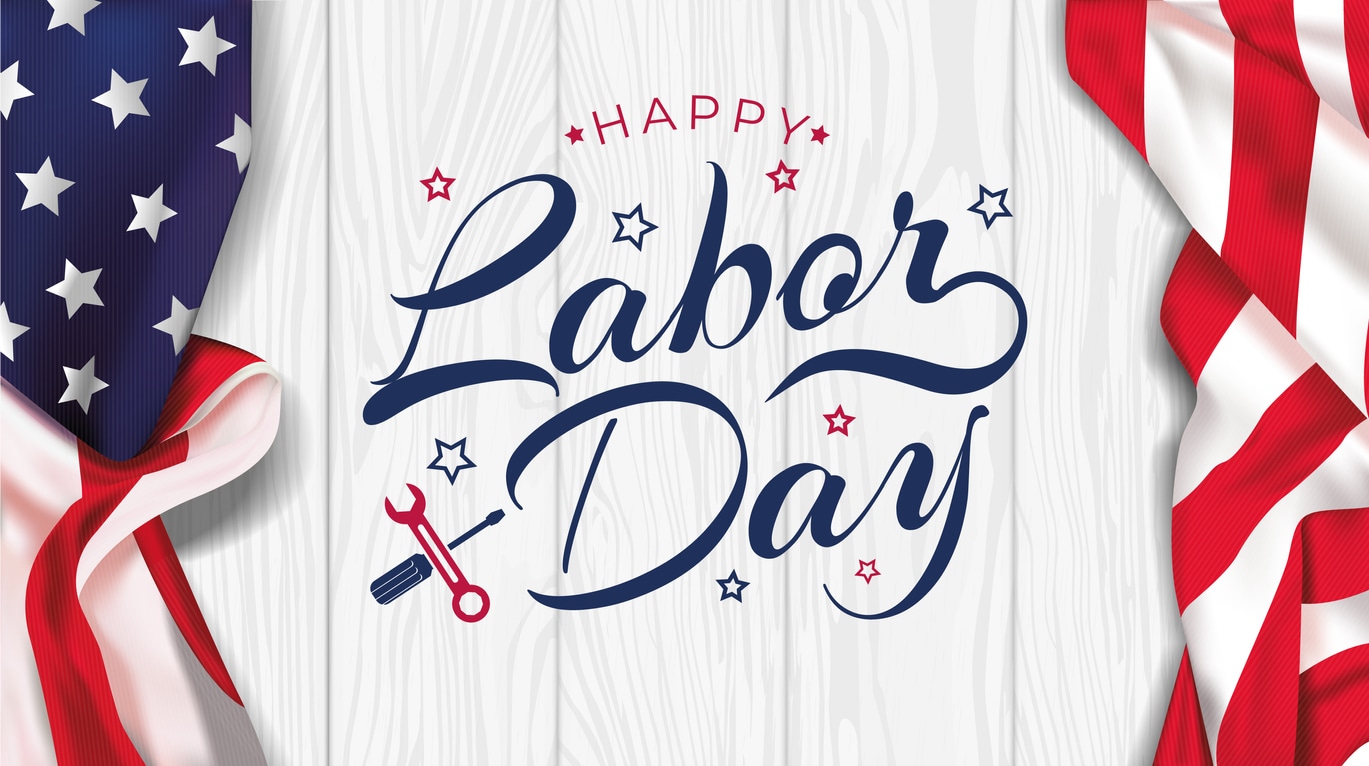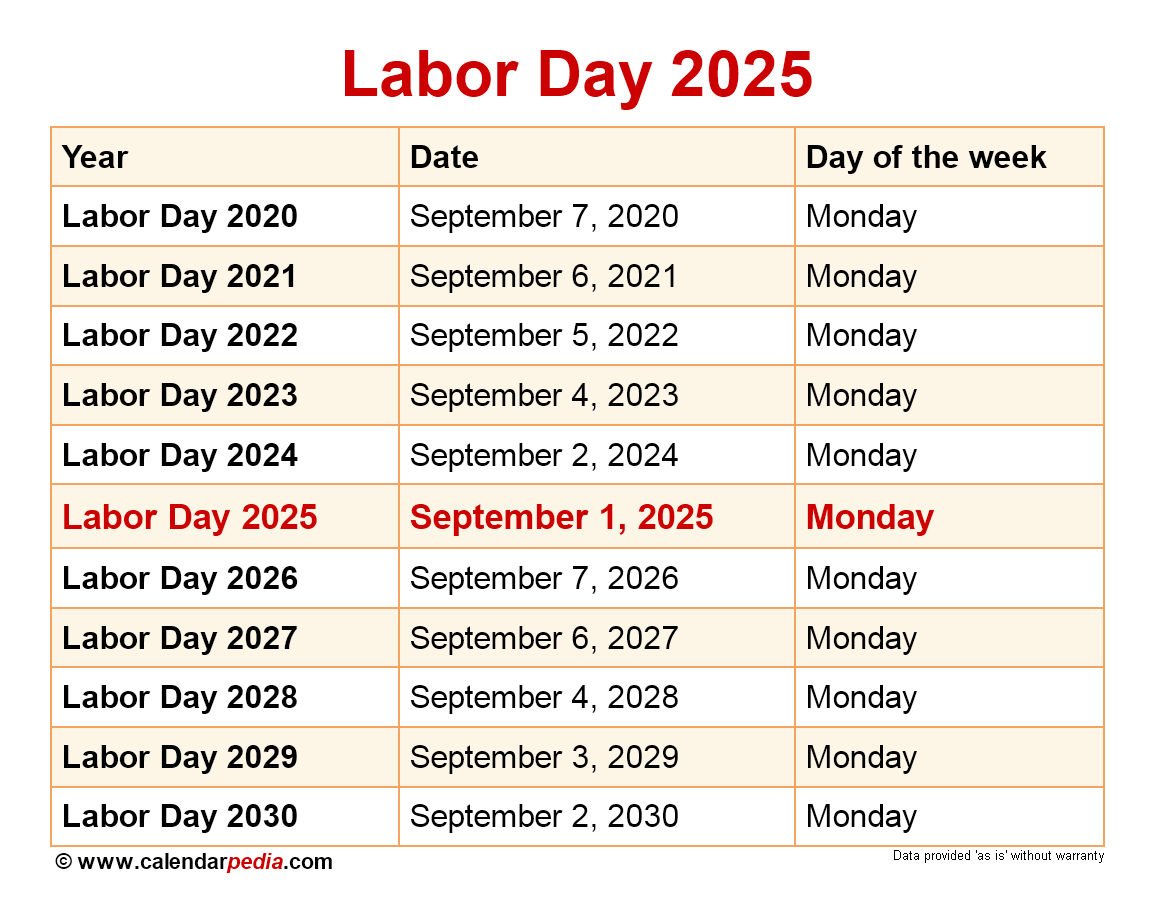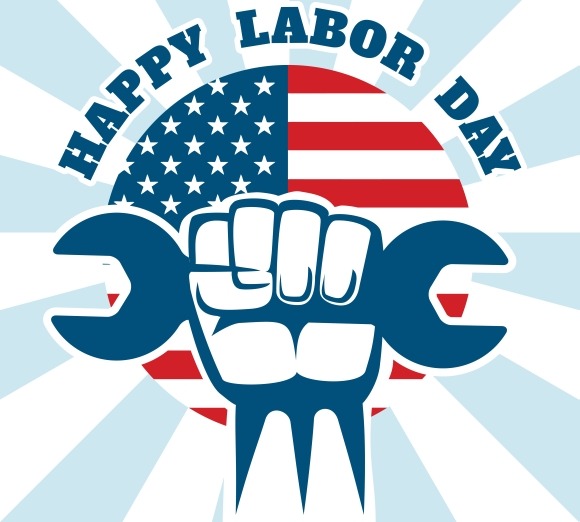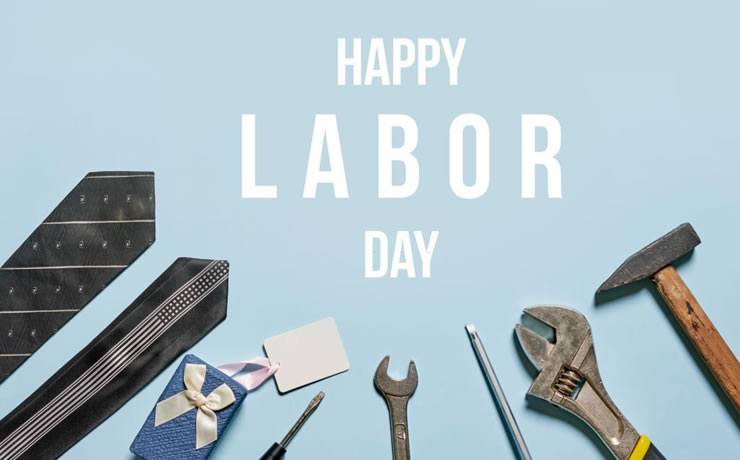Labor Day 2025: A Reflection on Progress and Resilience
Related Articles: Labor Day 2025: A Reflection on Progress and Resilience
Introduction
With enthusiasm, let’s navigate through the intriguing topic related to Labor Day 2025: A Reflection on Progress and Resilience. Let’s weave interesting information and offer fresh perspectives to the readers.
Table of Content
Labor Day 2025: A Reflection on Progress and Resilience

Labor Day, observed annually on the first Monday of September, is a day dedicated to celebrating the achievements of American workers and acknowledging their contributions to the nation’s economic prosperity and social well-being. While the holiday itself is a fixed point on the calendar, its significance and relevance evolve with the changing landscape of the American workforce. In 2025, as the nation navigates a complex economic and social environment, Labor Day will offer a unique opportunity to reflect on the challenges and triumphs of the past year and to consider the path forward.
A Look Back: Key Trends and Developments
The period leading up to Labor Day 2025 will likely be marked by a number of significant trends and developments shaping the American workforce. Some key areas to consider include:
- The Future of Work: Automation, artificial intelligence, and the rise of the gig economy continue to reshape the nature of work. While these trends offer potential for increased efficiency and productivity, they also raise concerns about job displacement, income inequality, and the need for robust retraining programs.
- The Changing Demographics of the Workforce: The workforce is becoming increasingly diverse, with a growing number of women, minorities, and older workers. This demographic shift presents both opportunities and challenges, requiring businesses to adapt their hiring practices, workplace culture, and benefits packages to attract and retain a diverse talent pool.
- The Impact of Globalization: The interconnectedness of the global economy continues to influence labor markets in the United States, creating both competition and opportunities. Companies are increasingly seeking talent and resources from around the world, leading to a more complex and interconnected workforce.
- The Rise of Employee Activism: Workers are increasingly vocal about their concerns regarding wages, benefits, working conditions, and workplace culture. Unions and other worker advocacy groups are playing a more prominent role in shaping labor policy and advocating for worker rights.
- The Importance of Workplace Wellness: The focus on mental health, work-life balance, and employee well-being continues to gain momentum. Businesses are recognizing the importance of creating a supportive and healthy work environment to attract and retain talent.
The Significance of Labor Day 2025
In the context of these evolving trends, Labor Day 2025 will serve as a platform to:
- Celebrate the Achievements of Workers: The holiday provides an opportunity to acknowledge the hard work, dedication, and resilience of American workers, particularly in the face of economic uncertainty and rapid technological change.
- Reflect on the Challenges Facing the Workforce: Labor Day can serve as a reminder of the ongoing challenges faced by workers, including wage stagnation, job insecurity, and the need for affordable healthcare and education.
- Promote Dialogue and Collaboration: The holiday can foster dialogue and collaboration between employers, workers, and policymakers to address pressing labor issues and find solutions that benefit all stakeholders.
- Advocate for Fair Labor Practices: Labor Day is a time to reaffirm the importance of fair labor practices, including minimum wage laws, workplace safety regulations, and the right to organize and bargain collectively.
- Recognize the Value of Skilled Labor: The holiday can highlight the importance of skilled labor in all sectors of the economy, from manufacturing and construction to healthcare and technology.
FAQs About Labor Day 2025
Q: What are the traditional activities associated with Labor Day?
A: Labor Day is typically celebrated with parades, picnics, barbecues, and other gatherings. Many communities host events featuring live music, food vendors, and family-friendly activities.
Q: Is Labor Day a federal holiday?
A: Yes, Labor Day is a federal holiday in the United States, meaning most government offices, schools, and businesses are closed.
Q: What are some of the historical origins of Labor Day?
A: The origins of Labor Day can be traced back to the late 19th century, a period marked by significant labor unrest and calls for improved working conditions. The first Labor Day parade was held in New York City in 1882.
Q: How has the significance of Labor Day evolved over time?
A: While Labor Day has always been a celebration of workers, its significance has evolved to reflect the changing nature of the workforce and the challenges facing workers. In recent years, the holiday has become increasingly associated with issues such as income inequality, automation, and the future of work.
Q: What are some ways to celebrate Labor Day meaningfully in 2025?
A: Beyond traditional celebrations, individuals can mark Labor Day by:
- Supporting Local Businesses: Patronizing businesses that offer fair wages and benefits to their employees.
- Volunteering in the Community: Contributing to organizations that support workers’ rights and economic empowerment.
- Engaging in Political Advocacy: Contacting elected officials to advocate for policies that support workers’ interests.
- Educating Others: Sharing information about labor history, worker rights, and the challenges facing the workforce.
Tips for Celebrating Labor Day 2025
- Plan a Family Picnic: Gather friends and family for a traditional Labor Day picnic, enjoying outdoor activities, games, and delicious food.
- Attend a Local Parade: Participate in or watch a Labor Day parade, celebrating the contributions of workers and recognizing local heroes.
- Support Local Businesses: Spend time and money at local businesses that offer fair wages and benefits to their employees, supporting the local economy and promoting ethical practices.
- Volunteer at a Community Event: Contribute to a community event that benefits workers, such as a food drive, clothing donation, or job fair.
- Engage in Educational Activities: Learn about labor history, worker rights, and the challenges facing the workforce, sharing your knowledge with others.
Conclusion
Labor Day 2025 will offer a unique opportunity to reflect on the progress and challenges facing the American workforce. It is a time to celebrate the achievements of workers, acknowledge the ongoing struggles, and engage in dialogue and collaboration to create a more just and equitable future for all. By acknowledging the contributions of workers, promoting fair labor practices, and advocating for policies that support worker well-being, we can ensure that Labor Day continues to be a meaningful celebration of the American workforce and its vital role in shaping the nation’s future.








Closure
Thus, we hope this article has provided valuable insights into Labor Day 2025: A Reflection on Progress and Resilience. We appreciate your attention to our article. See you in our next article!